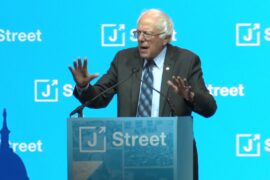In my last piece, I wrote about how drug company executives in the United States manipulate government officials and domestic consumers. This article will focus on the industry’s concerted efforts to crush global competition, often at the expense of American patients.
Two major examples come to mind.
The Partnership for Safe Medicines is a nonprofit whose stated principles are:
1) unifying the fight against counterfeit drugs,
2) securing and protecting the pharmaceutical supply chain, and
3) regulating online sellers.
In order to accomplish this, the partnership has coordinated a widespread campaign against foreign pharmaceutical imports, including and especially those from Canada, which is not exactly known for its illicit pharmaceutical drug trade. As was published on the NPR website in April of last year, this nonprofit has deep ties to PhRMA, the pharmaceutical industry’s lobbying arm.
What does this mean practically? A nonprofit largely funded by the pharmaceutical lobby waged a war against a bill that could have increased competition for the pharmaceutical companies, driving down their prices (and profits). The bill would have also needed to be passed by the U.S. Congress, the large majority of which received campaign contributions from the lobbyists (nine out of ten members of the U.S. House of Representatives and all but three of America’s 100 senators). Practically speaking, this means that these players – all of whom are theoretically supposed to be looking out for the welfare of the American people – are putting personal gain over the health and even lives of U.S. citizens.
Concerned yet? There’s more.
The week after U.S. President Donald Trump’s appointee as Secretary of Health and Human Services, Alex Azar (a former Eli Lilly executive), entered into office, the President called Israeli Prime Minister Binyamin Netanyahu to express his objection to Israel’s plan to export medical cannabis. This industry has the potential to earn Israel between $1-$4 billion each year – what could amount to around 1% of the country’s GDP.
Medical cannabis poses a huge threat to the pharmaceutical industry, as it addresses many of the health issues people face on a daily basis (minor pain, appetite loss, insomnia, glaucoma, anxiety, and the list goes on), without the uncomfortable and sometimes dangerous side effects associated with parallel pharmaceutical palliatives. By this point, it makes perfect sense that the pharmaceutical lobby would have the president stop the nation with one of the most advanced medical cannabis industries in its tracks. And because of Israel’s economic and military dependence on the U.S., it makes perfect sense that Netanyahu would slavishly agree.
So there you have it. High prices for potentially harmful drugs. This is how pharmaceutical companies and the politicians accepting contributions from them are making their money. The American people are paying their salaries with their money and their lives while the health industries of other nations are prevented from advancing to the point they could compete with Big Pharma.





